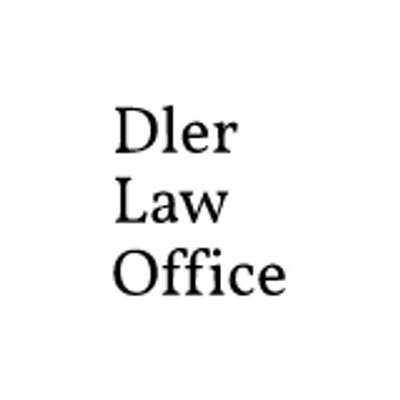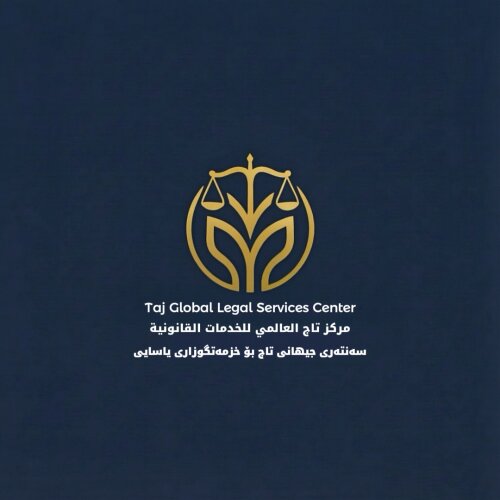Best Appeal Lawyers in Iraq
Share your needs with us, get contacted by law firms.
Free. Takes 2 min.
Or refine your search by selecting a city:
List of the best lawyers in Iraq
About Appeal Law in Iraq
Appeal law in Iraq is a critical component of the Iraqi legal system, providing a mechanism for the review of court decisions to ensure fairness and justice. The appeal process allows parties dissatisfied with a trial court's judgment to seek a reconsideration by a higher court. Appeals can be made for a variety of reasons, including perceived errors in the trial court’s application of the law or its interpretation of the facts.
Why You May Need a Lawyer
Seeking legal advice for an appeal in Iraq may be necessary in several situations. You might require a lawyer if you believe that the trial court made an error in its decision, if there was a procedural irregularity that affected the outcome of your case, or if new evidence has come to light that could impact the verdict. Additionally, legal advice is often essential in navigating the complexities of filing an appeal and ensuring that all procedural requirements are met.
Local Laws Overview
The process for filing an appeal in Iraq is subject to specific procedures and deadlines, which are governed by the Iraqi Civil and Criminal Procedure Codes. Key aspects include understanding the grounds for appeal, knowing the timeline for filing (often within 30 days of the original judgment), and the necessity for the appeal to be made to an appropriate appellate court. In civil cases, the appeal must demonstrate that the trial court's decision was based on an incorrect interpretation or application of the law.
Frequently Asked Questions
What are the grounds for appeal in Iraq?
Grounds for appeal can include errors in law, procedural mistakes, or misinterpretation of evidence during the trial.
How long do I have to file an appeal?
You typically have 30 days from the date of the judgment to file an appeal, but this can vary based on the type of case and court requirements.
Can I introduce new evidence in an appeal?
Introducing new evidence can be challenging and is generally not allowed unless it is deemed crucial and was unavailable at the time of the original trial.
What is the role of an appellate court in Iraq?
The appellate court reviews the decision of a lower court to determine if any legal errors affected the verdict or judgment.
Is a lawyer required for filing an appeal?
While it's not legally required to have a lawyer, it is highly recommended to seek legal assistance due to the complexity of appellate procedures.
How long does the appeal process take?
The duration varies based on the court’s caseload and the specific nature of the case, but it can take several months to over a year to reach a resolution.
What happens if the appeal is successful?
If successful, the appellate court may reverse the decision, order a new trial, or amend the judgment.
Can every decision be appealed?
Not all decisions may be appealable, particularly if they are preliminary rulings or settlements agreed by both parties.
What are the costs involved in filing an appeal?
Costs can include court fees, legal representation fees, and potential costs for additional procedures or expert consultations.
What is a ‘final decision’ in an appeal in Iraq?
A ‘final decision’ means the appellate court has rendered its judgment, and no further appeal is usually possible unless taken to a higher authority like the Court of Cassation.
Additional Resources
For those seeking more information on appeals in Iraq, it may be helpful to consult the Iraqi Judiciary’s official website or legal aid organizations for guidance and support. Government bodies like the Ministry of Justice and local bar associations can also provide essential information and referral services.
Next Steps
If you believe you require legal assistance in filing an appeal, it is crucial to act quickly due to the time-sensitive nature of the process. Begin by consulting with a legal professional experienced in appeals to assess the merit of your case and plan the appropriate course of action. Your lawyer can help you navigate the procedural requirements and advocate effectively on your behalf to achieve a favorable outcome.
Lawzana helps you find the best lawyers and law firms in Iraq through a curated and pre-screened list of qualified legal professionals. Our platform offers rankings and detailed profiles of attorneys and law firms, allowing you to compare based on practice areas, including Appeal, experience, and client feedback.
Each profile includes a description of the firm's areas of practice, client reviews, team members and partners, year of establishment, spoken languages, office locations, contact information, social media presence, and any published articles or resources. Most firms on our platform speak English and are experienced in both local and international legal matters.
Get a quote from top-rated law firms in Iraq — quickly, securely, and without unnecessary hassle.
Disclaimer:
The information provided on this page is for general informational purposes only and does not constitute legal advice. While we strive to ensure the accuracy and relevance of the content, legal information may change over time, and interpretations of the law can vary. You should always consult with a qualified legal professional for advice specific to your situation.
We disclaim all liability for actions taken or not taken based on the content of this page. If you believe any information is incorrect or outdated, please contact us, and we will review and update it where appropriate.
Browse appeal law firms by city in Iraq
Refine your search by selecting a city.
















